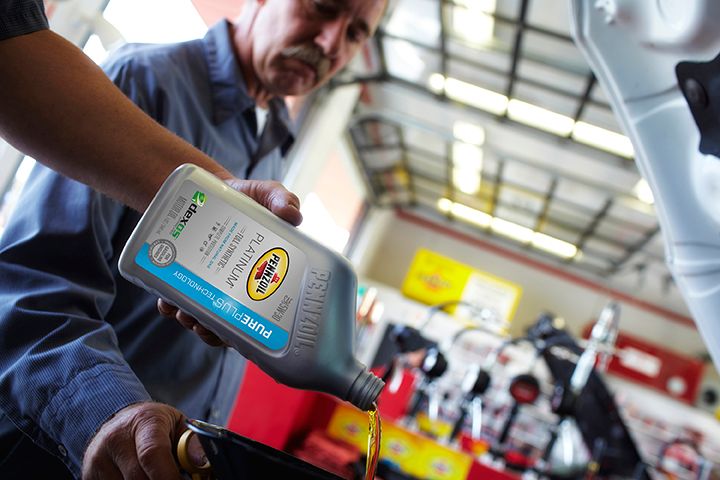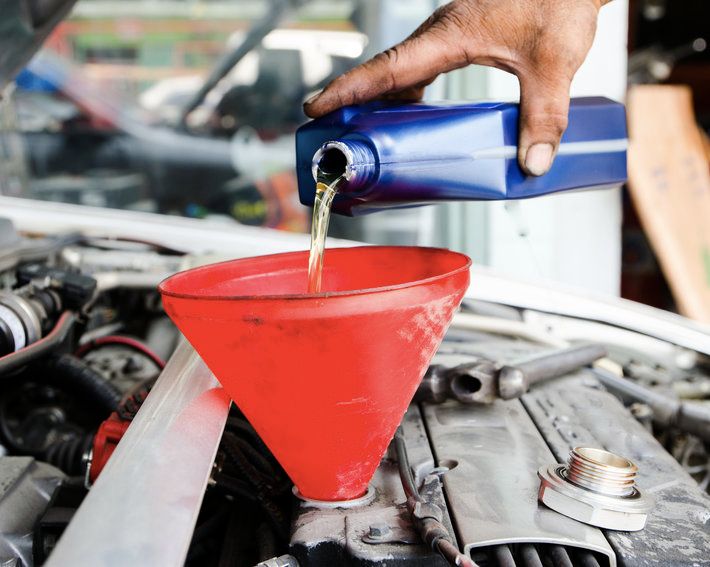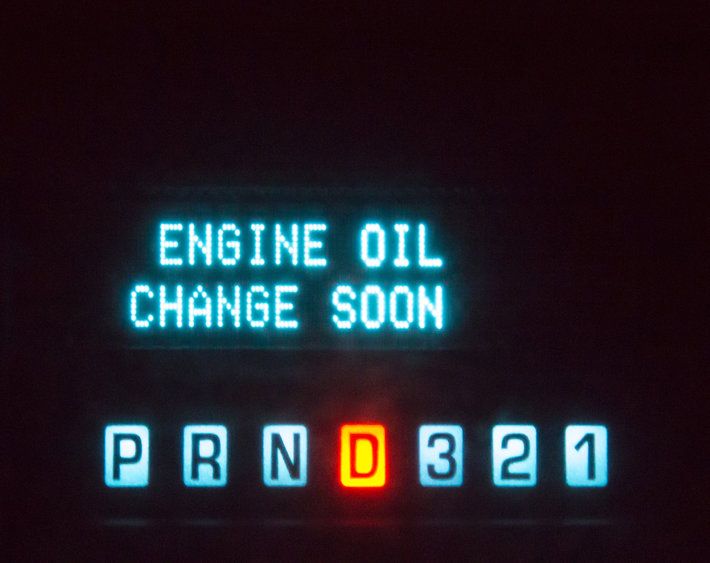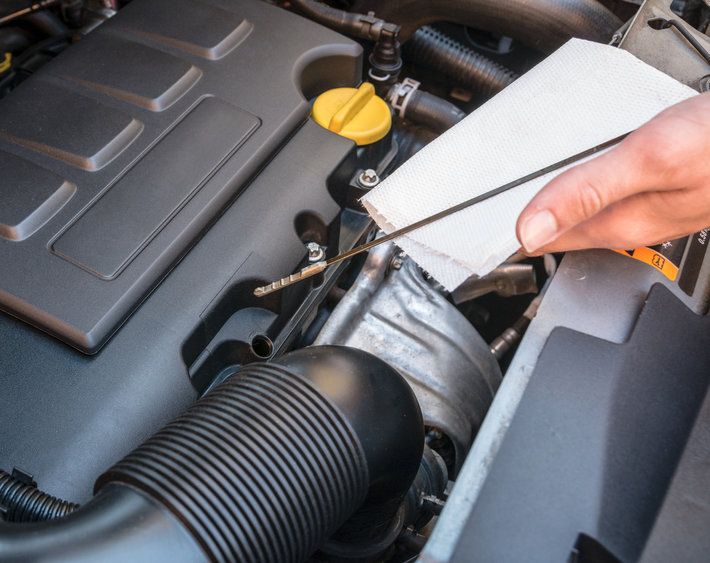What is "viscosity" and why does it matter for your engine's oil? How do you even know where to find the viscosity rating of your motor oil? Put on your lab coat and follow along to learn how to read an engine oil label and see why it's important for your car's health!
Viscosi-what?
What's the definition of viscosity? Viscosity is a scientific term that indicates how thick or thin a liquid is. Water flows relatively quickly, so it is considered to have a thin or low viscosity. Honey has a higher viscosity than water, but still flows. Peanut butter has extremely high viscosity. Ever tried to pour peanut butter out of its jar and onto a peanut butter and jelly sandwich? Yeah...good luck with that one...
Viscosity and Your Car's Engine
As oil moves through your engine, it coats the moving engine parts so that they don’t grind against each other and wear down. Engine oil also helps to clean, cool, and protect your engine.
When comparing engine oils for your ride, the most important thing to keep in mind is the oil's viscosity rating. Look for the viscosity grade(s) recommended by the original equipment manufacturer (OEM), which you can locate in your owner's manual. You want an oil that provides thick, cushiony support for your engine when it’s running hot, but won’t turn to molasses when it gets cold. Like Goldilocks and her porridge, you want an oil that's neither too thin nor too thick, but one that's juuuuusssst right. Keep in mind that older vehicles tend to require a thicker oil for added lubrication, no matter the climate.
How to Read Viscosity Ratings
In order to determine which oil is right for your car's engine, you'll need to look for the viscosity rating.
You can find the viscosity rating directly on the oil's bottle. All motor oils have viscosity ratings given by the the Society for Automotive Engineers, with the most common viscosity grade being 5W-30. Looking at this series of numbers and letters, note that everything to the left of the dash is the cold weather rating, as W stands for “Winter.” The lower the "W" number, the better the oil will perform at a cold temperature. The number to the right of the dash is the viscosity rating at engine operating temperature. The higher the number, the thicker the oil. The lower the number, the thinner the oil.
For example, a rating of 5W-30 means that the oil will have a viscosity rating of 30 at 212℉, or 100℃, (an engine's average operating temperature).The “5W” means the engine will still pump at -35℃, which is the coldest temperature at which the oil has been tested. Your engine was designed to operate with a specific viscosity grade, so always follow the vehicle owner’s manual to determine the correct viscosity grade. Using motor oil that is too thin may cause durability issues, but using motor oil that is too thick may cause the engine to operate less efficiently.
Conventional or Synthetic?
Modern motor oil formulations are approximately 80% base oil and 20% additives. The base oil can either be conventional, synthetic, or a blend of both. The additives include detergents, dispersants, antioxidants, friction modifiers, viscosity index improvers, inhibitors, anti-wear additives and more.
Conventional Oil
Conventional base oil has only been refined from crude oil and contains many impurities. Additives help improve the base oil to provide adequate engine protection.
Synthetic Oil
Synthetic base oil has gone through additional chemically engineered processes, and as a result, the molecules are more uniform in shape and size with fewer impurities. On a technical level, synthetic motor oils provide better high and low temperature performance and are usually formulated with higher performing additives.
Visit the Oil Experts at Firestone Complete Auto Care
When it comes to all of the parts and fluids that make up your car's engine, it may feel like you have to be an auto expert to keep everything straight. But with Firestone Complete Auto Care by your side, you don't. You just have to bring your car to our auto experts and we'll walk you through the science of caring for your vehicle in no time. Visit your nearest Firestone Complete Auto Care location today for a quick oil change, a complete checkup, and everyday advice for selecting the best oil for your vehicle.



